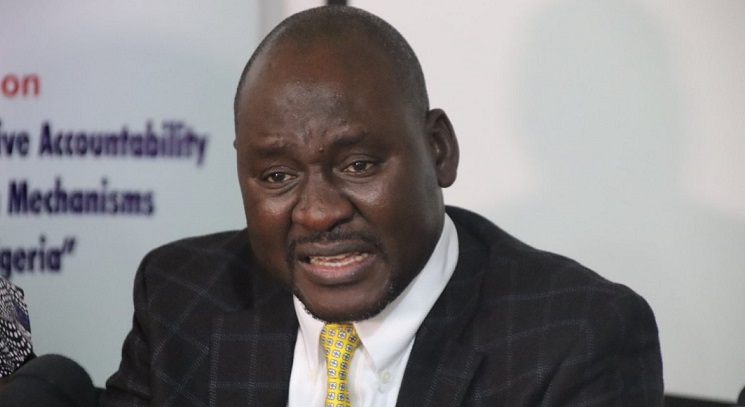The Executive Director of the Civil Society Legislative Advocacy Centre, CISLAC, Auwal Musa-Rafsanjani, has said it would be irresponsible for Nigerian government to trivialise results of the 2020 CPI index which highlighted the country as a corrupt nation since 2013.
Recall that the Corruption Perception Index, computed by Transparency International, TI, based in Germany scored Nigeria as the second most corrupt country in the ECOWAS region, behind Guinea-Bissau.
Mr Rafsanjani, in a statement sent to DAILY NIGERIAN, explained that it would be wrong for Nigerians to take the general position of “we do not need TI to tell us that corruption is everywhere in Nigeria” and not take time to reflect constructively on factors driving the unfavourable ranking.
He noted that groups like TI, the Mo Foundation, CISLAC, CDD, BudgIT, SERAP are not biased, partisan or incompetent with their thinking and employs consistent methodology to provide evidence-based result.
CISLAC’s own Corruption Barometer, a survey carried out with Afro-Barometer measures the detailed public opinion of citizens and this, in conjunction with another survey that includes TI’s CPI, points at a negative trend in fighting corruption in Nigeria and the overall quality of governance in the country.
Nigeria’s Information Minister, Lai Mohammed, had on Sunday faulted the Transparency International’s corruption rating of Nigeria, saying it does not reflect the country’s strides in fighting corruption.
This, according to Mr Rafsanjani, constitutes “desperation and a lack of policy that would make a difference.”
Mr Rafsanjani stressed how in 2014, the National Chairman of APC, Chief John Odigie-Oyegun, claimed the unfavourable CPI result proved that widespread corruption abound in the country and wondered what has changed from 2014 that the APC administration now fault TI’s methodology.
Proofs and consequences
Rafsanjani maintains that the Federal Government cannot claim a lack of truth in the CPI rating because “it is the Governmental own data that suggests that corruption incidents, not just perceptions, are rampant.”
The national corruption surveys conducted by the National Bureau of Statistics (NBS) in 2017 and 2019 also revealed the prevalence of bribery and corruption of Nigerians when dealing with the Nigerian Police, judicial system and other public institutions.
It is CISLAC’s position that “one has to be extremely unlucky to be caught, prosecuted and convicted for corruption in Nigeria.”
According to Mr Rafsanjani, available data has shown that Nigeria loses billions of dollars every year on tax evasion, defence procurement among others.
The country has also been unable to make true on most of its anti-corruption commitments made in recent years.
Nigeria’s poor CPI rating, Rafsanjani said, will have a direct and indirect impact on economies and the lives of people.
“Many multinational companies consider the CPI ranking when deciding where to invest.
“Governments around the globe include the CPI results in their political economy analysis when deciding how to engage a particular country in terms of investments, development cooperation or diplomatic ties.”
FG’s cosmetic measures make no difference
The Federal Government has been urged to improve on governance if it seeks a good CPI rating in the future.
Mr Rafsanjani insists that the country must first experience a positive difference before CPI and other indices begin to move in the right direction.
He said: “How do we stop tax evasion? How do we ensure transparency in public finance management? How do we comply with procurement guidelines?
“How do we nominate leaders of public institutions based on merit, not on political, ethnic or religious affiliation?
“How do we ensure civil servants are appointed, appraised and promoted on merit? How do we dismiss politics from the anti-corruption fight? How do we create systems to prevent abuse of power by public officials?
“These are practical problems that we should all be discussing. We do not need the CPI for that.”






